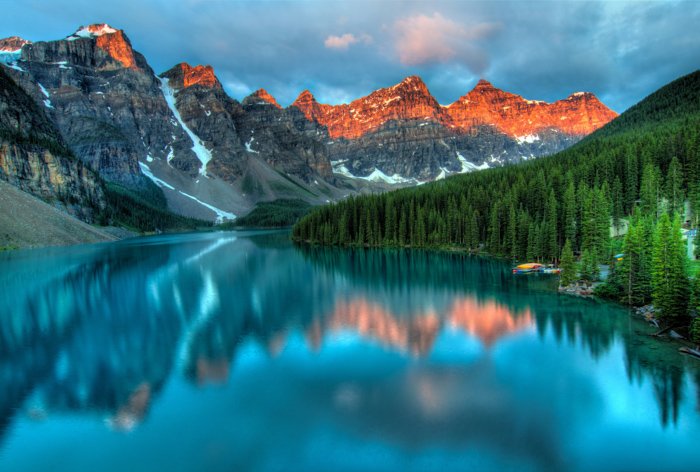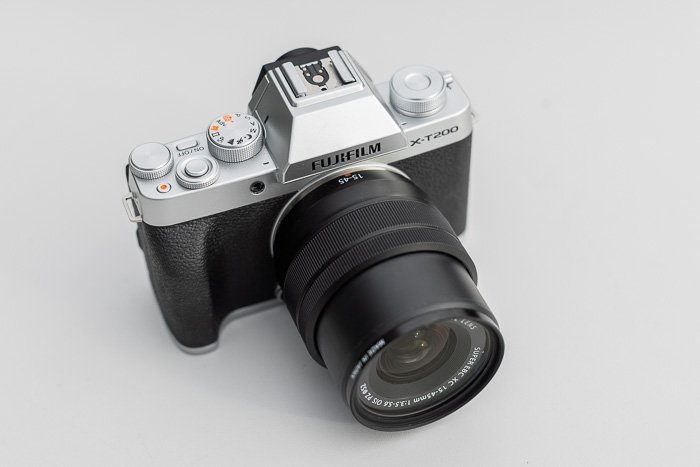Do you love to shoot dramatic landscapes and beautiful interiors? Or do you often work in complex lighting conditions? Then HDR is a technique you should learn to use.
Software that helps you produce HDR images can be expensive. But there are some free alternatives. Here are the best free HDR software on the market today.
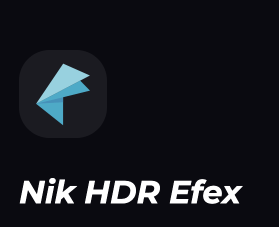
What Is Free HDR Software?
HDR is an acronym for high dynamic range. Dynamic range refers to the range of light between shadows and highlights. Images with a high dynamic range have detailed highlights and shadows.
We tend to see HDR images more appealing, and it’s because of the greater range of luminosity. Our eyes have a stunning dynamic range that no camera can ever mimic.
Cameras are limited in their dynamic range. This means that you cannot expose for the highlights and shadows at the same time. One of them will suffer.
Exposing for highlights will make your shadows too dark. And exposing for the shadows will make your highlights too bright. It’s not possible to get the settings just right in one image.
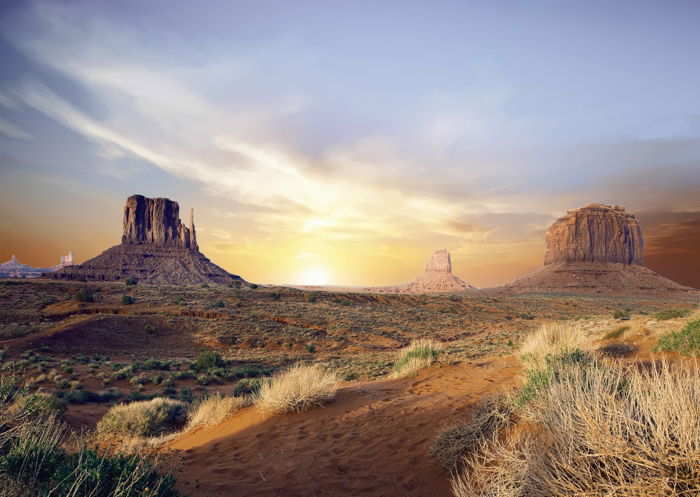
HDR photography uses technology to overcome this problem. Instead of taking one photo with high dynamic range, you take many pictures of the same scene at different exposures. The images are then combined in post-processing to create an HDR photo. The final image exposes each part of the picture correctly.
You need to take at least three photos. One to expose for the shadows, one to expose for the highlights, and one neutral shot right in the middle. This is called “bracketing.”
Set the exposure for the mid-range of the shot, then bracket by plus and minus one or two stops for the HDR. Many cameras will let you set the bracketing automatically.
Many cameras have a built-in bracketing tool. You can also manually adjust the exposure compensation dial to achieve similar results.
You need three images when creating an HDR picture, but some photographers take five or seven exposures.
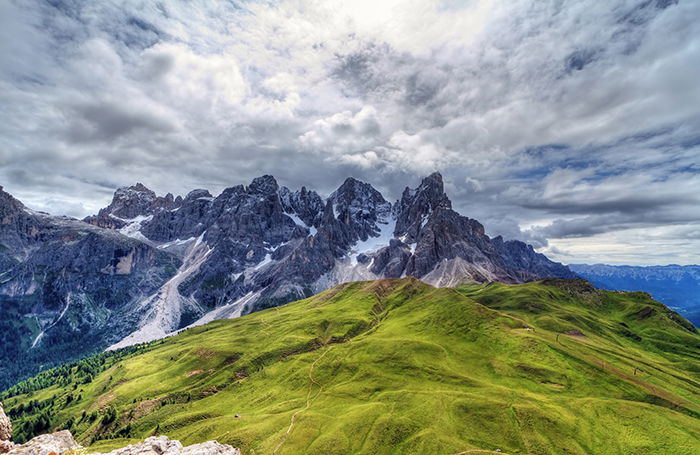
1. Lightroom (Photo Merge)
Let’s start with HDR software tools you may already have. Both Lightroom and Capture One do HDR image processing.
In Lightroom, the tool is very basic, but it does combine exposures and do ghost removal. It’s called Photo Merge.
Ghost removal aligns the images and reconciles any element that might have moved between the exposures. For instance, clouds or trees.
Simply select the images with varying exposures you want to combine and select the dropdown menu ‘Photo’. Choose ‘Photo Merge‘ – ‘HDR’.
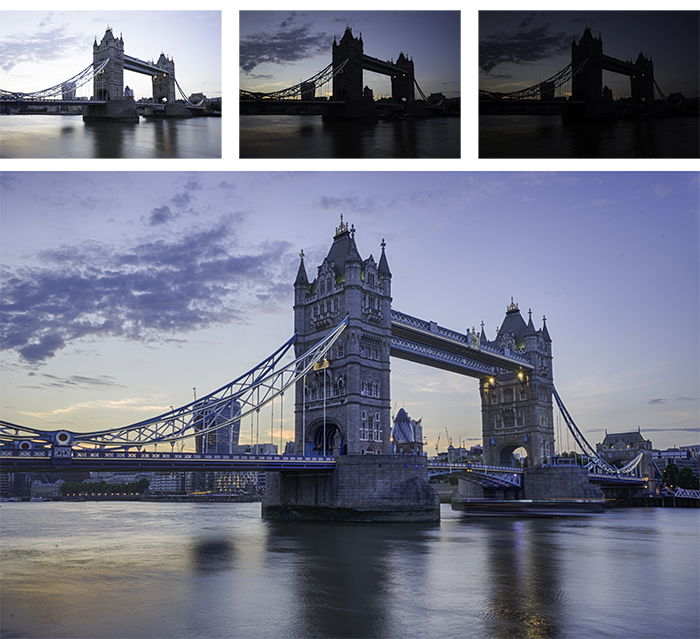
2. Photoshop (HDR Pro)
Within Photoshop is a tool called HDR Pro. The tool is located in the ‘File’ dropdown menu. Select ‘Automate’ – ‘Merge to HDR Pro’.
This tool is more advanced than the HDR software in Lightroom. You can adjust edge glow, tone curve, and color. These change how Photoshop layers the exposures.
If you’re new to HDR programs, you might not know how best to edit your HDR photo. That is when presets can help you to enhance your image.
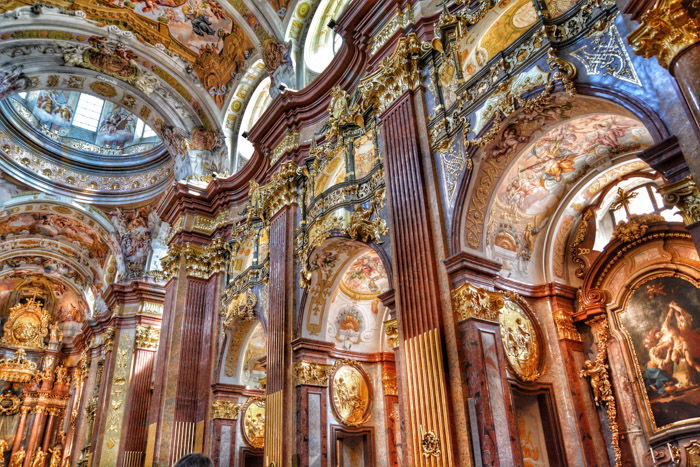
3. Luminance HDR
When asking for free high dynamic range programs, Luminance HDR tends to be on the top of everyone’s list.
Luminance HDR is an intuitive program with an easy-to-use interface. The most recent 2019 edition features many useful tools to bring out the best in your HDR photography.
Developers upgraded the HDR solution with new features like automatic anti-ghosting, FITS support integration with Windows taskbar, improved 1/10 with TIPF 32 bit and redesigned merge algorithms.
Some new sliders have been implemented too, such as ‘Gamma’ and ‘Saturation’.
Luminance HDR reads both JPEG and RAW files. A key benefit to Luminance HDR is the ease at which you can export photographs to additional photo editing software, such as GIMP (a free alternative to Photoshop).
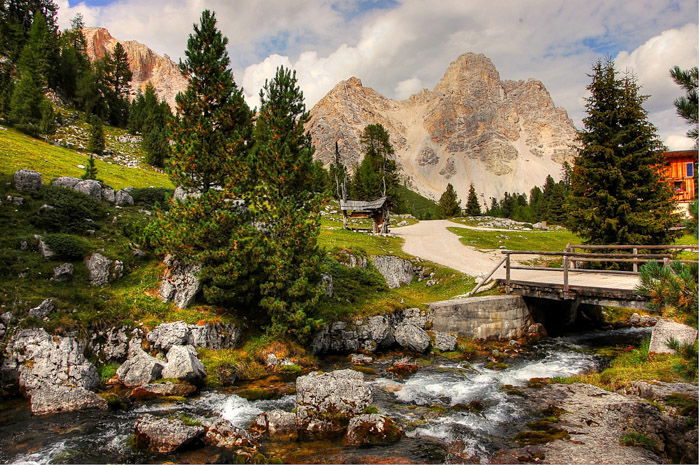
Luminance is available for Windows and Mac.
4. Picturenaut 3
Picturenaut 3 is another free HDR software tool. Picturenaut is by HDRLabs, a project established to create free software for various processes.
Picturenaut is a very light software program. It’s easy to install and even easier to use. Touted as one of the best free HDR software solutions out there, Picturenaut is just as intuitive as Luminance but functions a little bit differently.
The program has a drag-and-drop feature and supports both PNG and RAW files. The tool also includes Alpha channel view, auto-cropping, and is one of the fastest at tone mapping.
The open-source API is also publicly available for programmers interested in tweaking the program for even better results. This German program is ever-changing with new intelligence added every day.
Picturenaut 3 is available for Windows and Mac.
5. FDRTools Basic
FDRTools (short for Full Dynamic Range Tools), is a free HDR software tool for those looking to create a more realistic look to a high dynamic range image. There is a free basic version and a more advanced shareware version.
This program is not as advanced as the two previously mentioned. But it’s an excellent choice for a beginner who doesn’t want a complicated interface or too many different options to be confused about.
A big difference between FDRTools and other HDR software is its goal to bridge the gap between merging and tone mapping. The FDRTools tone mapping algorithm is very advanced in comparison to other programs.
The user has full control over the merging process by looking at the tone mapped image. They can then edit the merging of source images in real-time. Users can choose to include or not include a particular source image or adjust the opacity of individual images.
FDRTools has noteworthy customer service and is constantly updating its features.
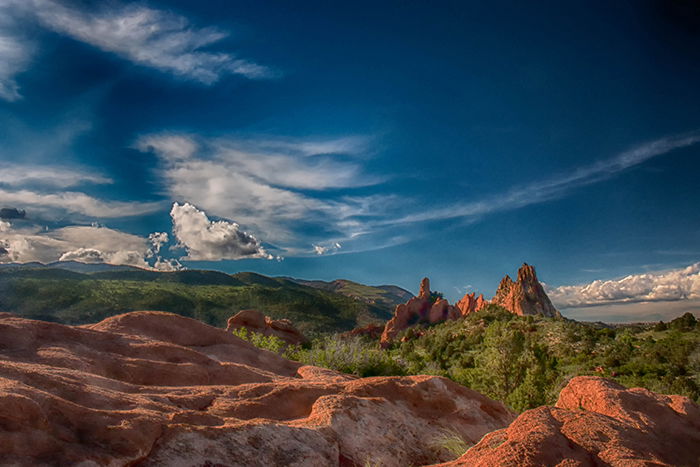
FDRTools is available for Windows and Mac.
6. Photomatix Pro
Photomatix Pro is a powerful HDR software program. It is available both as a standalone program and as a plugin for Lightroom. The company is developing a plugin for Capture One.
The free trial version does not expire, but it does watermark your images. Photomatix offers a license for $99, but there are other options depending on your needs.
Photomatix Pro is a flexible tool for processing high dynamic range HDR photos. It includes plenty of presets to get you started. The color adjustments and tone mapping features in Photomatix Pro allow you to fine-tune your image even further.
The program allows you to paint on color effects selectively and blend in the original photo for a more natural effect.
If you want the look of HDR, but don’t have a bracketed set of photos, Photomatix Pro will create an HDR image from a single photo.
For photographers who do a lot of HDR processing, Photomatix Pro includes a customizable batch editing tool.

Photomatix Pro is available for Windows and Mac.
7. Nik HDR Efex Pro
HDR Efex Pro is part of the Nik collection. This tool works as a Lightroom plugin.
The history of the Nik collection is a bit complicated. The collection was free for a time when Google owned it. If you downloaded the collection during this period, it is still useable. Since then, this popular collection has been purchased and expanded by DXO. There is still a free trial version available.
The Nik collection is known for its quality presets. If you click through these, you’ll see various HDR options. The program lets you further control how much of the effect is applied.
Saving the HDR image takes it back into Lightroom.
HDR Efex Pro is an easy-to-use and powerful tool which is a must-have extension for Lightroom. Especially for landscape photography.
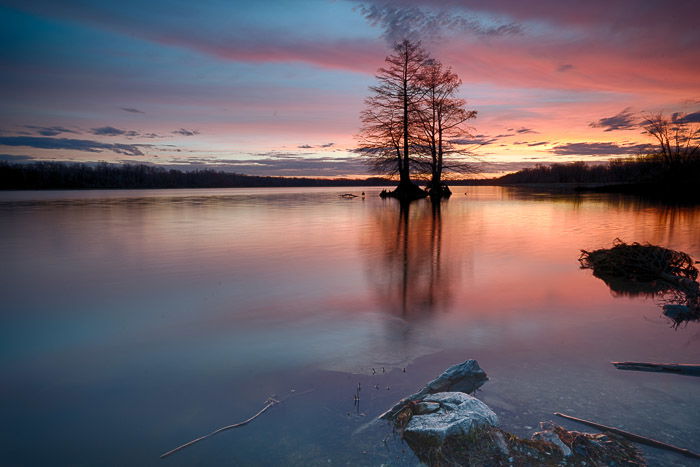
Nik HDR Efex Pro is available for Windows and Mac.
8. EasyHDR
EasyHDR is just as its name suggests – easy. It is available both as a standalone program and as a plugin for Lightroom. The free version does not expire, but it does watermark your images.
The software may be easy to use, but it is powerful.
Drag and drop RAW or JPEG images into the program and use the presets to get started. Then adjust the tone mapping tools to get a realistic effect. Much of the interface looks similar to Lightroom and Photoshop, making tools easy to find and use.
There’s even a clone brush to take out errant dust spots. The software also includes basic layers for masking and color correction.
EasyHDR allows for batch editing, which automatically identifies the HDR sequences. This is great for photographers who do a lot of HDR conversions.
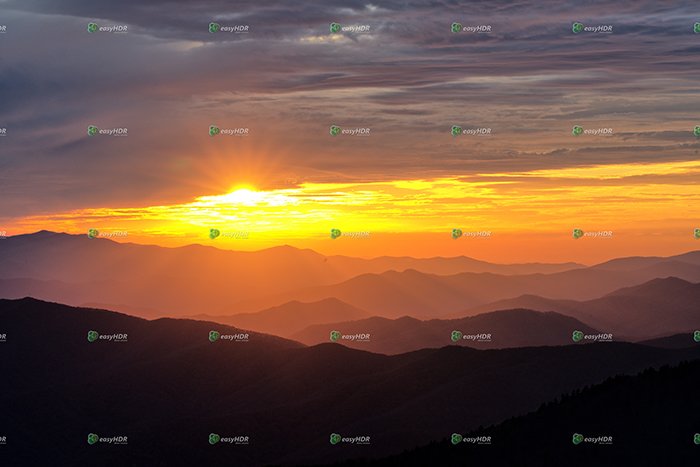
EasyHDR is available for Windows and Mac.
Conclusion
Real estate, landscape, and artistic photographers use HDR software to adjust images with wide dynamic range.
But be careful! Too much HDR can make an image look cartoony and fake. A level of restraint is necessary to use this process.
There are many free options available. Some work as plugins in programs like Lightroom, others are standalone programs. Programs differ in their flexibility, ease of use, and how realistic the final HRD image is. Try them out, and see which one works best for you!

